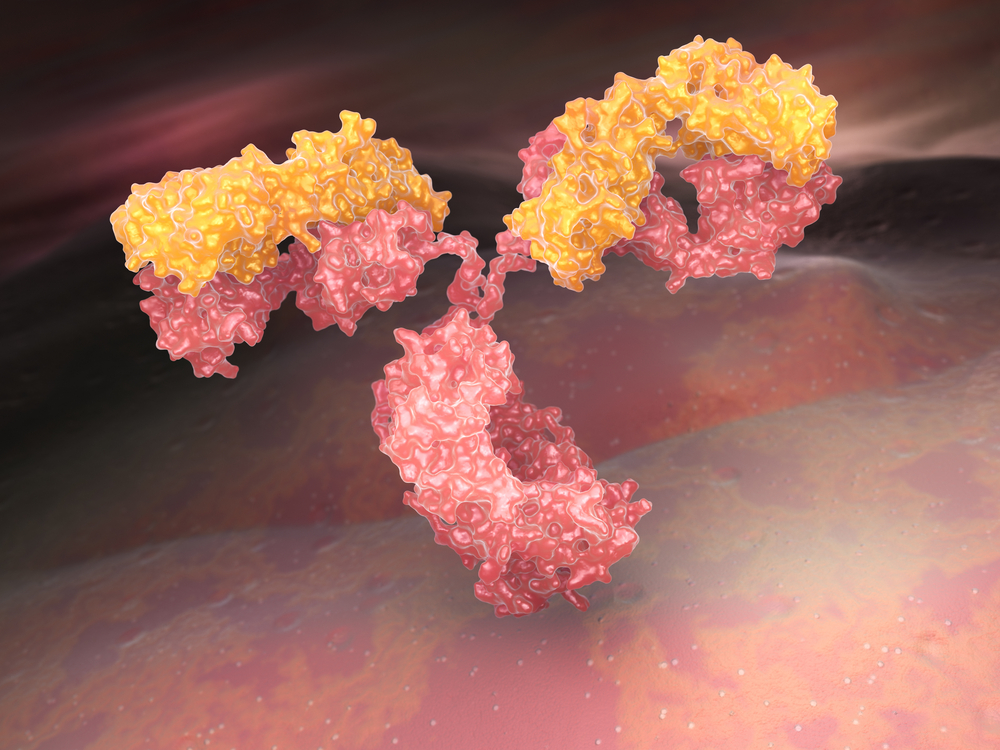Antibodies Targeting an Alzheimer’s Gene Effectively Treat Cognitive Impairments in Mice

A new immunotherapy targeting apolipoprotein E4 (apoE4), a genetic variant of apolipoprotein E that increases the risk of early onset Alzheimer’s disease (AD), may be a potential therapeutic approach for a good number of patients with the disease, according to researchers at Tel Aviv University, Israel.
Researchers, working with mouse models, found that blocking apoE4 in the brain reversed apoE4-induced cognitive impairments in the mice. Their study, “An Anti-apoE4 Specific Monoclonal Antibody Counteracts the Pathological Effects of apoE4 In Vivo,” was published in Current Alzheimer Research.
ApoE4 protein is involved in lipid metabolism, and is the most prevalent genetic risk factor of AD. More than half of Alzheimer’s patients have been found to express this gene variant, which is known to lower the age of AD onset by seven to nine years per allele copy.
In a recent study, other researchers revealed that apoE4 works by controlling the expression of genes involved in a variety of processes implicated in Alzheimer’s pathogenesis, including aging, oxidative damage, accumulation of amyloid plaques, aggregation of tau protein, inflammation, and insulin resistance. This suggests that apoE4 may be a potential therapeutic target in AD.
The researchers, led by Dr. Ishai Luz, explored whether the “toxic” apoE4 effects could, in vivo, be counteracted with monoclonal antibodies targeting this protein. They used a specific antibody that precisely targets apoE4 and not any of the other variants of the apoE family. In initial proof-of-concept experiments, they revealed that injection of anti-apoE4 antibodies directly into the brain was able to counter apoE4 effects.
Subsequent experiments, where the antibodies were injected peripherally in a repetitive manner, showed that these antibodies can accumulate in the brain and bind to apoE4. This was associated with the reversal of important brain-related pathological effects of apoE4 and of the cognitive impairments caused by apoE4.
These results suggest that immunotherapeutic injections against apoE4 may protect against the cognitive and pathological effects of apoE4 in the brain. Although more research is needed, the findings in mice suggest that such approach may benefit Alzheimer’s patients who carry at least one copy of the apoE4 allele.






